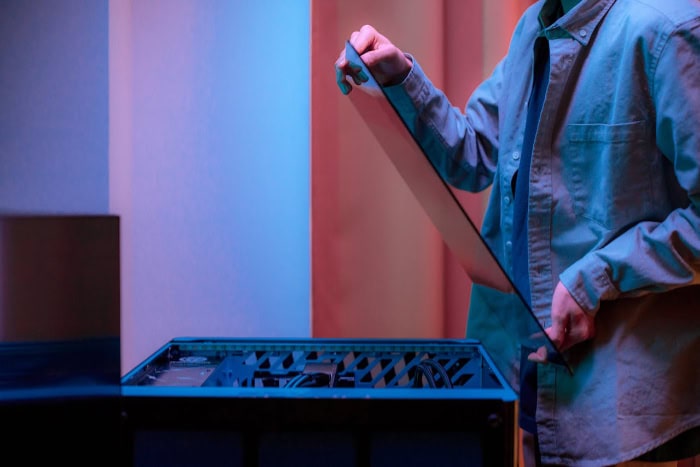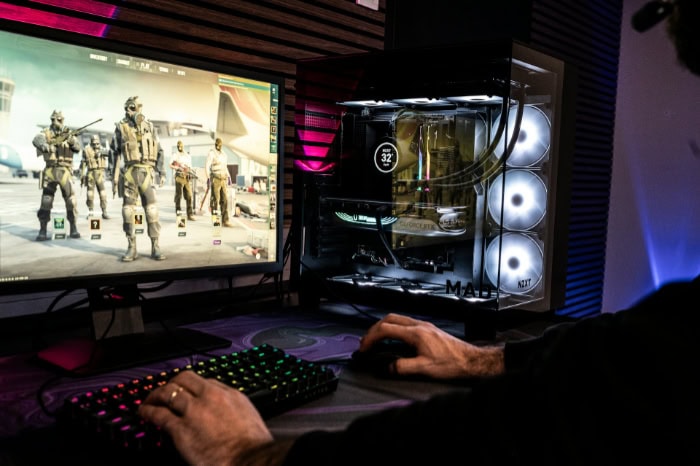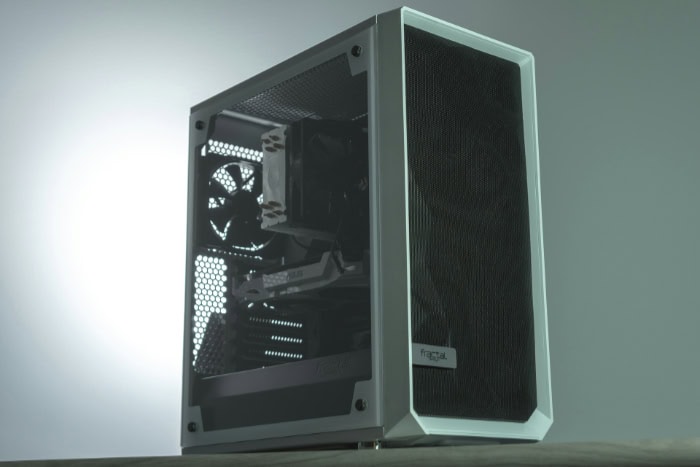Mid Tower vs. Full Tower: Choosing Your PC Case

Selecting the right PC case is a crucial step that can shape everything from your build’s performance to its overall look and feel. Mid tower and full tower cases are the two most popular options, each with distinct advantages suited to different users and ambitions.
Size, expansion potential, and cooling capability often top the list of considerations, but your budget, desk space, and plans for future upgrades matter just as much. With so many variables at play, making the best choice can save you time, money, and frustration down the road.
Physical Dimensions and Space Requirements
Choosing between a mid tower and a full tower case often starts with a good look at their physical dimensions. The size of your PC case impacts not only aesthetics but also the practicality of where you can place your system, how easily you can move it, and how much room you have for hardware inside.
Size Comparisons
Mid tower cases typically measure around 17 to 20 inches in height, 7 to 8 inches in width, and 17 to 20 inches in depth. These dimensions make them ideal for most desks or compact setups, offering enough space for standard ATX motherboards and full-sized graphics cards without being overly bulky.
Full tower cases, on the other hand, are noticeably larger, with heights often ranging from 22 to 27 inches, widths of 9 to 11 inches, and depths that can extend to 24 inches or more. This considerable increase gives you extra internal space for more hardware, but it also means the case itself can dominate a room or workspace.
Workspace Compatibility
The physical footprint of your PC case directly affects where it can live in your home or office. Mid towers are generally well-suited for placement on top of or underneath average desks.
Their manageable size means they do not require much rearranging or special furniture to fit comfortably. Full towers, due to their considerable height and depth, are rarely practical on a desk.
Instead, they are usually placed on the floor, sometimes beside or under a desk, occupying a chunk of your available space. If you have a smaller room or limited desk area, the sheer size of a full tower might be a deal-breaker.
Always measure your available space before committing to either type, as clearance for ventilation and cable routing can further affect placement options.
Portability
Aside from size, weight is a crucial aspect to consider, especially if you plan to move your PC for events, LAN parties, or regular cleaning. Mid tower cases are lighter, typically weighing between 15 to 25 pounds when empty.
This makes them much easier to transport, carry upstairs, or reposition as needed. Full tower cases often weigh 30 pounds or more before you even start adding components.
Once fully loaded, moving a full tower can become a two-person job and may require careful planning to avoid damage or injury. If portability is important to you, a mid tower offers a much more practical solution, while a full tower is best left stationary in a dedicated spot.
Hardware Compatibility and Expansion Options

Your choice between a mid tower and a full tower case carries significant implications for the types of components you can install and the possibilities available for future upgrades. The form factor and internal space of the case will determine not only what hardware fits, but also how easily you can expand your system down the line.
Balancing your current needs against potential upgrades is essential for a build that can evolve over time.
Motherboard Support
Mid tower cases generally accommodate standard ATX motherboards and, in many instances, micro-ATX and mini-ITX boards. This covers the majority of consumer builds, including gaming PCs and everyday productivity machines.
However, if you intend to use a larger motherboard, such as an Extended ATX (E-ATX) or XL-ATX for workstation or enthusiast use, a mid tower might not provide the necessary space for proper installation and airflow. Full tower cases shine in this area, offering support for larger motherboards.
This extra room becomes invaluable for systems requiring additional RAM slots, multiple CPU sockets, or extensive onboard features. For builders planning complex or professional setups, the flexibility provided by full towers can be a substantial advantage.
GPU/PCIe Slot Capacity
Most mid towers provide enough clearance for one or two full-length graphics cards in a standard ATX layout. This is more than sufficient for the vast majority of modern gaming builds, given that multi-GPU setups have become less common in recent years.
Still, some users require extra slots for add-in cards, advanced audio, network cards, or even multiple high-end GPUs for professional work. Full tower cases typically offer a larger number of PCIe expansion slots and more generous spacing between them.
This additional real estate can make installation easier and reduce crowding, particularly if you are planning a heavily upgraded or workstation-class PC. Managing cables and airflow around multiple large components is far less stressful within the open spaces of a full tower.
Drive Bay Availability
Storage needs can grow over time, especially for users working with video editing, large media libraries, or operating as a home server. Mid tower cases usually provide anywhere from two to six drive bays for hard drives or SSDs.
This is sufficient for many users, but can quickly become limiting if you want to expand your storage without relying solely on M.2 slots or external drives. Full towers, by comparison, often feature expansive storage options, with multiple dedicated 3.5-inch and 2.5-inch bays, hot-swap cages, and tool-less mounting systems.
This allows you to outfit your system with a combination of RAID arrays, SSD caches, and traditional bulk storage, all neatly contained within one chassis.
Cooling Performance and Thermal Management

Efficient thermal management is essential for a healthy, long-lasting PC, and your case plays a significant role in how well your components are cooled. Differences between mid tower and full tower cases can have a notable impact on airflow, ease of cable routing, radiator options, and even overall system noise.
Airflow Design
The design and layout of a case influence how air moves through your system. Mid tower cases usually have support for several intake and exhaust fans, with most offering optimized paths for airflow from front to back and bottom to top.
However, space can get tight, especially after installing larger graphics cards, power supplies, and extra drives. In these situations, efficient cable management can become challenging, sometimes leading to obstructed airflow that affects cooling performance.
Full tower cases, with their larger interiors, offer far greater flexibility for optimized airflow. The extra room not only allows for more and bigger fans, but also ensures cables are easier to route out of sight and away from primary air channels.
This translates into less turbulence, smoother cooling, and often, lower internal temperatures. Ample space between components helps prevent hot spots and promotes more effective heat dissipation, which is particularly valuable under sustained heavy loads.
Radiator Support
Modern cooling solutions, such as all-in-one (AIO) liquid coolers and custom water-cooling loops, have grown popular for high-end builds and overclocking. Mid tower cases often provide mounting points for 240mm or 280mm radiators, allowing for decent water-cooling performance while still conserving space.
For most users running standard configurations, this is perfectly adequate.
If you have ambitions to run larger, more complex cooling setups, a full tower delivers the freedom to install large 360mm or even 420mm radiators, sometimes with support for multiple units at once. This is particularly useful for custom loops that cool both CPU and GPU, or for those seeking the lowest possible temperatures with minimal noise.
The extra mounting points and room for reservoirs, pumps, and tubing simplify installation and maintenance of advanced cooling systems.
Noise Levels
A quieter system is often more pleasant to use, especially in a home office or bedroom environment. Larger cases generally have the advantage here, as they can accommodate bigger fans that move the same amount of air at lower speeds.
This reduces the overall noise produced by your system, since lower RPMs mean quieter operation. Mid tower cases, while effective at maintaining airflow, may require smaller fans spinning faster to keep temperatures in check, which can lead to a higher noise floor.
Strategic placement of noise-dampening materials and the potential for more sound insulation in full towers further enhance acoustic performance. For those particularly sensitive to fan noise or who plan to push their hardware to the limit, choosing a case that offers the best balance between airflow and quiet operation is an important consideration.
Use Case Scenarios and Target Audiences

Choosing between a mid tower and a full tower case often depends on the specific needs of the user and the intended application of the PC. Not every build requires the same amount of hardware, expansion potential, or cooling horsepower.
The type of case you select should reflect both the demands of your planned workload and your preferences for cost and space.
Mid Tower
Mid tower cases hit the sweet spot for most gamers and users seeking a powerful yet manageable PC. Their size accommodates standard ATX motherboards and full-length graphics cards, making them ideal for high-performance gaming setups.
Builders can easily fit in efficient cooling solutions and several storage drives without struggling with a cramped workspace. For those focused on productivity, such as content creators or remote workers, the mid tower provides a balance between hardware capacity and unobtrusive design.
Desk placement is another advantage, as these cases generally fit well in home offices or bedrooms without dominating the area.
Enthusiasts who value portability or regularly attend LAN parties also lean toward mid towers. The lighter weight and easier handling make transport less of a hassle.
Most users will find that a mid tower delivers more than enough room for upgrades and high-end hardware, provided ambitions do not extend into the territory of extreme customization or server-level tasks.
Full Tower
Full tower cases cater to users with advanced building ambitions. Those running powerful workstations, servers, or systems dedicated to extreme overclocking will quickly appreciate the extra space.
These cases support oversized motherboards, a greater number of GPUs, and extensive storage arrays. Additional clearance allows for elaborate cooling systems, such as custom water-cooling loops or large radiators, which are essential for managing the heat generated by multiple high-performance components.
IT professionals or creators managing massive workloads, developers working with virtual machines, and gamers and overclockers who want to push hardware to the absolute limit all benefit from the expansion and flexibility that full towers provide. Physical space for cable management and airflow can make maintenance easier and promote more stable operation even under intense use.
Budget vs. Ambition
While the prospect of extra space may be tempting, it is important to consider actual requirements before settling on the largest case available. Overspending on a full tower when only a mid tower is needed can lead to wasted money and lost desk or floor space.
Conversely, compromising on size for the sake of budget can cause frustration if you attempt significant future upgrades.
Reflecting honestly on your computing needs now and in the near future helps ensure your case choice is both practical and cost-effective. Opting for a case that matches the scale of your ambitions, without adding unnecessary bulk or expense, ultimately leads to a more satisfying build and a better user experience.
Cost Considerations and Value Proposition

Cost is often one of the first elements people look at when choosing between a mid tower and a full tower case, but the overall value goes far beyond the price tag on the box. Factoring in both the initial investment and the potential for future upgrades can illuminate which case offers the best return for your budget.
Additional purchases such as fans, cooling components, and aesthetic modifications can also influence the total expense, so it pays to plan ahead and anticipate your build’s evolving needs.
Price Ranges
Mid tower cases occupy a broad price spectrum, with budget models starting at $50–$100 and scaling up to $200–$300+ for sophisticated designs with premium materials, tempered glass, and enhanced features. Even high-end mid towers typically cost 30–50% less than their full tower counterparts, which see prices rise quickly to $250–$600+ as their size and feature set increase.
Full towers tend to start at a higher base price ($150–$250 for entry-level models), reflecting their larger build, extra material, and advanced expansion options. Those aiming to create a flagship system or specialized workstation should be prepared for a steeper up-front outlay ($500+ for premium configurations), particularly if advanced features like dual-chamber layouts or 14+ fan support are prioritized.
Long-Term Value
Selecting a case with an eye on the future can either save money or add unnecessary cost, depending on how accurately you anticipate your needs. A spacious full tower may offer peace of mind by accommodating multiple upgrades and advanced cooling down the line, but it only delivers value if you actually use that flexibility.
Many users will find that a thoughtfully chosen mid tower supports several upgrade cycles and growing demands, especially as hardware becomes more power-efficient and compact with each generation. Striking a balance between what you need now and what you might add in a few years is a wise approach that helps avoid outgrowing your case too soon or overspending on capacity that will stay empty.
Hidden Costs
The initial price of the case is just one part of the budget equation. Many cases, especially in the lower price tiers, include only basic cooling solutions or limited fan counts, requiring additional investment to achieve optimal airflow or silence.
Custom cooling loops, extra fans, and RGB lighting can add to the cost, particularly for full towers with more mounting points to fill. Modifications for aesthetics or cable management, such as sleeved cables or lighting strips, further increase expenses and effort.
It is important to consider not only the sticker price but also what it will take to bring your build up to your personal standards for cooling, performance, and style.
Conclusion
Selecting between a mid tower and a full tower case often boils down to three core considerations: size, cooling capability, and overall cost. Mid towers present a practical, space-efficient choice for most gamers and productivity users, offering strong hardware support and more manageable proportions for smaller rooms or desks.
Full towers, on the other hand, appeal to enthusiasts with advanced needs, providing expansive hardware compatibility, greater thermal performance, and abundant room for customization or future upgrades.
If your priorities are a tidy footprint, ease of handling, and lower up-front expenses, a well-designed mid tower will likely satisfy your expectations while leaving room for moderate expansion. Builders looking to install multiple GPUs, set up elaborate water-cooling systems, or future-proof for workstation-level tasks will benefit from the roominess and versatility of a full tower.
In the end, the best choice aligns closely with how you intend to use your PC and what you foresee needing down the road. Reflecting on your actual requirements, both now and in the future, ensures you invest in a case that not only looks good but also sets the foundation for a reliable and enjoyable computing experience.



